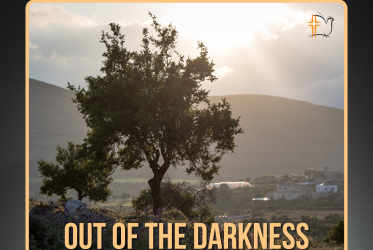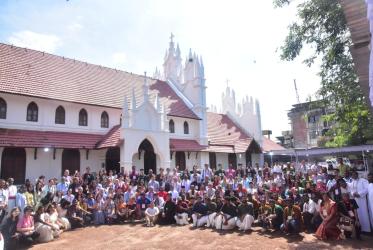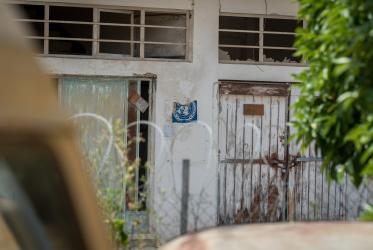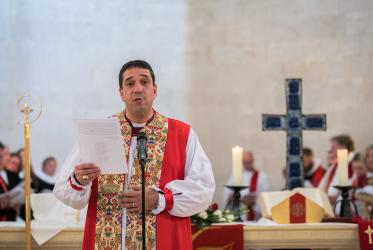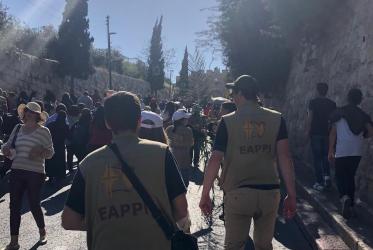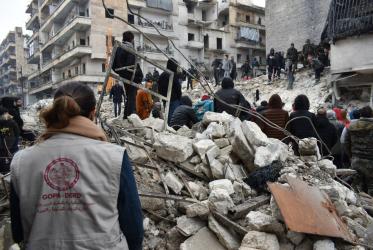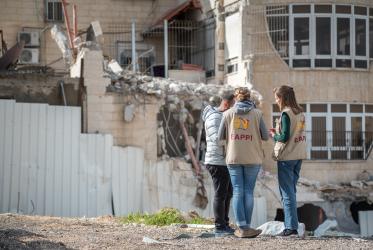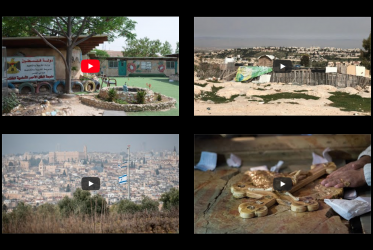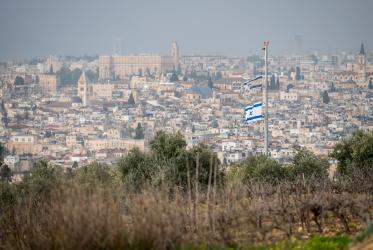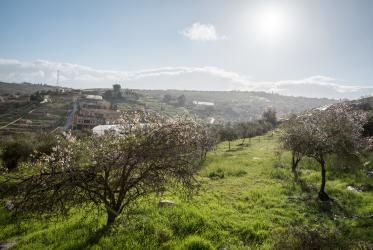Displaying 1 - 20 of 91
Blending local and global ecumenism in Asia
02 November 2023
In East Jerusalem, “we will never give up our rights”
29 October 2021
Bedouins of Pope’s Hill fight eviction
30 March 2021
East Jerusalem: Denied citizenship and the vote
30 March 2021
As olive harvest draws to a close, who is helping the farmers?
08 December 2020
WCC executive committee maps future with hope in uncertain times
19 November 2020
